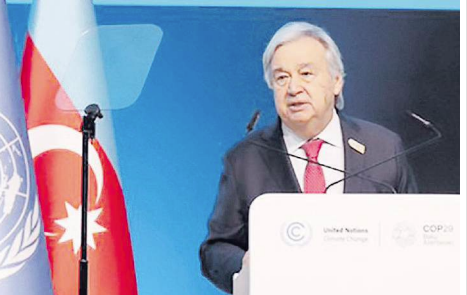

Experts are worried the rising demand for critical minerals to power the world to renewable energy could result in violation of the rights of communities.
It could also lead to degradation of the environment.
Minerals such as copper, lithium, nickel and cobalt are needed to transition the world to renewable energy.
The minerals are crucial in powering wind turbines, electric networks and electric vehicles.
In a side event dubbed, ‘Equity and justice in climate action: Advancing actions from the UN panel on critical energy transition minerals’, experts taking part in climate negotiations in Baku, Azerbaijan, said the extraction of crucial minerals is set to triple by 2030.
Ditte Jorgensen from the European Commission said minerals must ensure that there is prosperity, poverty elimination and drive sustainable development.
Kuda Manjonjo from Power Shift Africa said 60 per cent of minerals in Africa come from artisanal miners.
Manjonjo said there is a need to ensure there are benefits accruing from minerals instead of shipping them out of the African continent only for finished products to be shipped in.
“Raw materials go to other countries and come in the form of finished goods. How do we ensure that indigenous communities are part of extraction process without undermining their rights?” he said.
Manjonjo said Africa has a golden opportunity to lead in transition process.
He said Africa needs technology transfer as well as resources in order to actively involved in the transition process.
Camila Mercure from FARN said energy sectors is one of the sectors that is crucial in tackling the impacts of climate change.
She said there is need to ensure that the transition to renewable energy does not replicate the impacts of fossil fuels.
On Wednesday, UN Secretary General António Guterres addressed a roundtable to weigh in on the work of his Panel on Critical Energy Transition Minerals.
The panel was launched last year at COP28 in the United Arab Emirates with the aim of bringing together governments, international organisations, industry and civil society to develop common and voluntary principles to guide extractive industries “in the name of justice and sustainability”.
In Baku, the UN chief said the renewables revolution is powering forward. Last year – for the first time – the amount invested in grids and renewables overtook the amount spent on fossil fuels.
Demand for the minerals critical to the transition are expected to surge – as governments triple global renewables capacity by 2030 – as promised – and phase out fossil fuels, Guterres said.
“For developing countries rich in
those resources, this is a huge opportunity: to generate prosperity, eliminate poverty and to drive sustainable
development."



 © The Star 2024. All rights reserved
© The Star 2024. All rights reserved